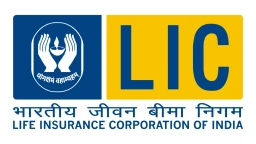What is Health Insurance? How does it work?

Health insurance is a type of insurance that helps pay for medical expenses should you become injured or ill. There are many different types of insurance, and each typically has different benefits and requirements. In this article, we’ll explore the different types of health insurance and provide you with an overview of what they are.
What is Health Insurance?
Health insurance is a type of insurance that helps pay for medical expenses if you get sick or injured. There are many types, But major Types are:
Private: This is health care coverage that you get from an individual or private company. You usually have to pay a monthly premium, and the coverage usually lasts for a set period of time, such as a year.
Public: This type of coverage is provided by the government. You usually have to pay a yearly premium, but the coverage is usually longer (for example, you may be covered for a lifetime).
How does Health insurance work?
Selecting a plan: A person can select a health insurance plan from an Insurer of his or her choosing based on the services offered, the costs covered, etc. Various companies have distinct rules regarding coverage in the event of pre-existing conditions. Therefore, it is crucial to pick the best plan for oneself while keeping in mind all of the important elements.
Calculation of the premium- The premium is computed for the buyer once they have chosen an insurance plan. Age, income, and any ailments or health issues are taken into account while calculating it. The insurance company is in charge of doing a thorough complete body examination.
Only then can the firm determine the annual premium due and the “sum guaranteed,” which is the maximum amount the insurance will cover.
Why do you need health insurance?
Health insurance is a coverage plan that helps pay for medical expenses if you or a loved one become ill. There are many different types of health insurance, including individual, family, and employer-sponsored plans.
Different types of health insurance have different benefits and exclusions. For example, individual health insurance may not cover maternity care or prescription drugs. In addition, some plans have higher premiums for people with pre-existing conditions.
To find the right one for you, ask your family doctor or search online for reviews.
What are the types of health insurances?
| Types | Suited for |
| Individual Health Insurance | Individual |
| Family Health Insurance | Family |
| Senior Citizen Health Insurance | Individuals of 65 years and above |
| Group Health Insurances | For a group of Employees |
| Disease-Specific | Suitable for people suffering from pandemic manifested insurace |
| Critical IllnessInsurance | For Expensive Treatments |
| Personal Accident Insurance | People who drive vehicle on daily basis |
| ULIPs | Dual benifit- As innsurance and as an investment |
How to choose the best Health Insurance?
When talking about health insurance, it is important to know what type of coverage you need and what is the best option for you. In this blog post, we will go over the different types of health insurance and give you a list of things to consider when choosing the right policy for you.
There are three main types: Individual, family, and employer. Each type offers different benefits and has different requirements.
Individual health insurance policies are the most common type. They are purchased by individuals on their own behalf. Individual policies can be very expensive, so it is important to compare prices before purchasing one.
Family health insurance policies provide coverage for a family member or spouse. Family policies usually have lower premiums than individual policies but they may not cover all of the same services. It is important to ask about coverage before buying a policy.
Employer-sponsored health insurance is the most common type. Employers pay for most of the costs of employee-sponsored insurance. Employees can choose to buy their own individual policy, but this is usually not a good idea because premiums are usually very high.
So, it is important to know your needs and decide which type of insurance is best for you.
Also: Read How to purchase LIC policies in India?
Types of Health Insurance acording to its Coverage
Health insurance can be classified according to its coverage:
1. Private Insurance covers only the insured person and their family.
2. Public Insurance provides coverage for everyone in a country, including foreigners.
3. Voluntary insurance is available only to certain groups of people, such as employees of private companies or members of professional associations.
4. Hospital insurance covers expenses incurred while staying in a hospital after being admitted for treatment.
5. Medical insurance covers expenses incurred while being treated outside the hospital, such as prescription drugs and medical equipment.
6. Disability income insurance provides financial support in case of a disability caused by an accident or illness.
How to claim Health Insurance?
Health insurance is a legal contract between an individual or group of individuals and insurer. The parties to the contract agree to provide financial protection against the costs of healthcare should they become ill or injured. It can take many different forms, including traditional indemnity insurance, which pays out a fixed sum of money should you become ill, and comprehensive coverage, which offers more extensive medical cover.
Cashless claims procedure for Scheduled treatment
The following describes the cashless claims procedure for scheduled treatment:
- At least five days prior to the scheduled treatment date, you must mail or email the cashless claim form to your insurance.
- When the insurance provider receives your cashless claim form, they will notify the hospital.
- A letter of confirmation will be sent to you, and it will be effective for seven days starting from the date of issuance.
- Before being admitted, submit the confirmation letter and health card. The insurance provider will cover your medical costs.
Cashless claims procedure for Emergency treatment

The following describes the cashless claims procedure for emergency treatment:
- Within 24 hours after being hospitalized, you must contact your insurance provider or third-party administrator. Your claim notification or reference number will be created.
- Your cashless claim form should be filled out and submitted by the hospital to your insurer.
- Upon obtaining your cashless claim form, the insurance company will send an authorization to the hospital.
- The insurance provider will cover your medical bills. You will be notified through email and registered cellphone number if your claim is denied.
Reimbursement claim procedure
The following is the Reimbursement claim procedure:
- Check the information shown on your medical bill.
- After being discharged from the hospital you must provide the appropriate documentation to the insurance provider or third-party administrator.
- The third-party administrator or insurance provider will examine your paperwork. It may take up to 21 days to evaluate your paperwork and handle the payment.
- If your insurance company has a query or if the claim is denied, you will be informed.
What are the Components of Health Insurance and what do they mean?
Health insurance is a type of protection that helps pay for medical costs when you need them, whether that’s in the form of a hospital visit, doctor’s appointment, prescription medication, or even surgery.
The three main components are: premiums, benefits, and copays.
Premiums are what you pay each month to your insurance provider. They cover the cost of your coverage and help to offset the costs of claims made by members of your plan.
Benefits are what you get when you use your health insurance. They can include coverage for major medical expenses like hospital visits and doctor’s appointments, as well as prescription drugs and other medical treatments.
Co-pays are what you have to pay out of pocket for services covered by your insurer. Co-pays can range from a few dollars for a doctor’s visit to a substantial amount for prescription medications.








